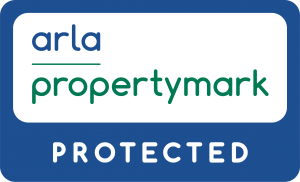Unless you have been living without a TV, phone or radio, I expect you have now heard about the Tenant Fees Act 2019, aka the “Tenant Fee Ban” (TFB).
So, what is it?
In short terms, the TFB is a piece of legislation introduced by the government which came into force on 1st June 2019. It specifically prohibits landlords and agents taking any form of payment (or forcing tenants to contract with a third party) in order to obtain or continue an Assured Shorthold Tenancy Agreement, unless that payment is specifically permitted by the ban (a “permitted payment“). All other payments are known as “prohibited payments” and carry heavy penalties, as I will discuss later in this article.
The TFB applies to all AST’s and licences (not common law, company or high rent tenancies) granted on or after 1st June 2019 and all AST’s and licences from 1st June 2020.
What payments are permitted?
There are several, including:
Rent (but this must be kept at the same level, or higher, throughout the duration of the fixed term. If it is decreased, the additional amount during the months prior to the increase will be seen as a prohibited payment.
Security Deposit (This is now capped at 5 weeks rent, and not a penny over, regardless of circumstances i.e. pets. Deposit calculators are widely available online, and the the following calculation must be used: (Monthly rent x 12/52 x 5). This cap is increased to six weeks rent for properties with an annual rent of over £50,000.
Holding Deposit (there are many regulations around the acceptance of a holding deposit, which I may need to go into further detail on a separate post. However the main points are that it is capped at 1 weeks rent, and it must be returned to the tenant save for four explicitly stated sets of circumstances .)
Change of tenancy Charge (a charge can be made when the tenant requests a change to the tenancy, such as the addition of a permitted occupier, or the change of a rent date. This charge is capped at £50 including VAT).
Late Rent Charge (this is one is pretty laughable and likely not worth even thinking about. You cannot charge for late rents, chasing letters, visits. The only charge you can make is an interest charge of 3% over the BOE base rate, after the rent is more than 14 days late).
Replacement keys/security device (Self explanatory, but you can only charge the cost of the replacement key or device, not for your time.)
Early Termination (If the tenant would like to leave a contract early, you can charge to cover your costs. However, if you are not using an agent, you are not permitted to charge them for re-referencing the new replacement tenants. They are also expected to pay rent and utilities up until the day before a replacement tenant moves in).
Breach of tenancy (If the tenant breaches any part of the agreement, you can seek to recover your costs from them, either directly or through the security deposit).
What payments are prohibited?
Anything not listed above is prohibited.
What are the penalties for breaching the ban?
Luckily for us Bristol folk, the government helpfully decided to place the central UK enforcement authority for the Tenant Fees Act within Bristol city council. They are a team who will be able to enforce the ban through penalties, and make no mistake, after reading the government guidance written for enforcement authorities it is very clear that they are being pushed to enforce this legislation to the letter. The reasons for this may become clearer to you if you allow me explain a little further about the penalties for breaching the ban.
If you purposefully or accidentally take a prohibited payment and do not return it to the tenant within 28 days, if reported it is likely you will be given a penalty charge. Ignorance is sadly no excuse so it is important you are aware of your obligations.
Any breach would render a Section 21 eviction notice invalid, so you would not be able to regain possession of your property until the prohibited payment was returned.
First breach: Up to £5000 penalty charge per breach (note: if you charge one fee that includes several items i.e. referencing, check in, tenancy fee: this could easily be seen as multiple breaches which would each attract a penalty charge in its own right).
Second or subsequent breach within 5 years: Criminal offence, or a penalty charge of up to £30,000 as an alternative to prosecution, per breach.
Common Errors
There are many people that believe the TFB only applies to letting agents, however this could not be further from the truth. As a self-managing landlord, here are a couple of scenarios which could easily catch you out if you are not making sure you are fully up to date with your obligations.
- Your tenant is on a six month AST which renews on the 1st August 2019. You currently hold six weeks deposit. At their request, you supply another six month agreement as you normally do, and as the deposit is held in a custodial scheme, no action is needed.
WRONG. Prior to signing the new fixed term agreement (and effectively creating a new tenancy, you MUST return the portion of the deposit that is over the five week deposit cap. If you do not do this, that money will become a prohibited payment and you will be in breach.
- You are advertising your property to rent as no pets, but someone phones and offers to pay a separate payment as protection against pet damage. This is fine, because it technically isn’t part of the security deposit.
WRONG. You must not take any money over the five weeks rent as a security deposit. In this scenario, not only would you be in breach of the TFB, but you would also be in breach of the Tenancy Deposit Protection Legislation.
- You are advertising your property to rent as no pets, but someone phones and offers to sign a contract that states they will have the property and carpets professionally cleaned and flea treated at the end of the tenancy. You agree to the tenancy on those terms.
WRONG. You must not make or allow the tenant to contract with a third party (that costs them money) as a condition of granting a tenancy. In this instance, the fact that they must pay for cleaning and flea treatment in order to have the tenancy would be a breach.
- Your tenant calls you at 10pm to say they have locked themselves out as they have lost their keys. You visit the property to let them in and provide them with a spare, and they give you £20 for your trouble.
WRONG. You are not able to charge for your time when resolving issues like this. You are only able to charge them the cost of the key. Our advice in this situation would be to either ask them to come to you to collect the key, or for them to call a locksmith who they would need to pay directly.
As you can see, the TFB was created as a piece of legislation to protect tenants from unscrupulous landlords and letting agents. I am the first to acknowledge that historically there has been a huge amount of unfair treatment of tenants, particularly from city centre Letting Agents across the country. However, the way this legislation has been written goes above and beyond the job it was meant to do.
It is so convoluted and technical that it makes it difficult for the non-professional landlord to stay compliant without expert support. It is full of opportunities for mistakes, and this coupled with widespread ignorance around the true implications and requirements of the Act means I am expecting to see a large amount of prosecutions over the next few years.
That said, any piece of legislation is subject to interpretation and until we have case law coming through giving us better more conclusive guidance on how to interpret the Act, we all just need to keep our fingers crossed that doing our due diligence is enough to comply and ensure that we aren’t one of the unfortunate few who are involved in creating that case law that everyone else is awaiting to enable them to learn from.
As always, I hope this information was useful, and if you have any questions feel free to post them below. Please make a point of reading our disclaimer located on the privacy page of this website.







